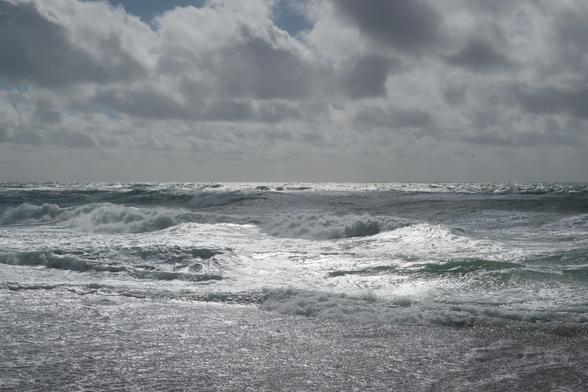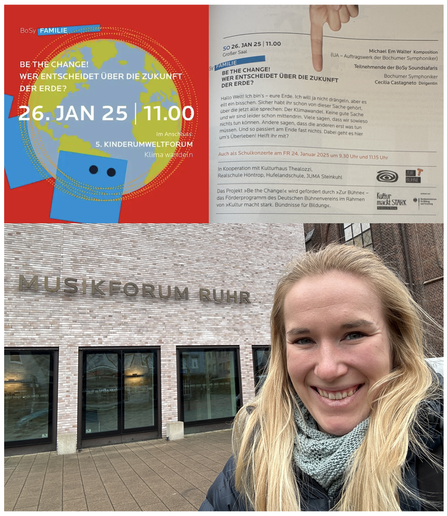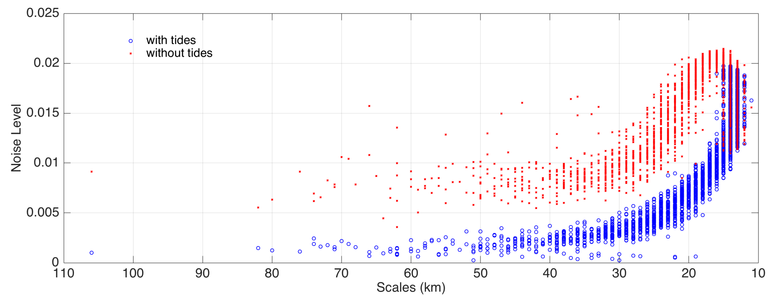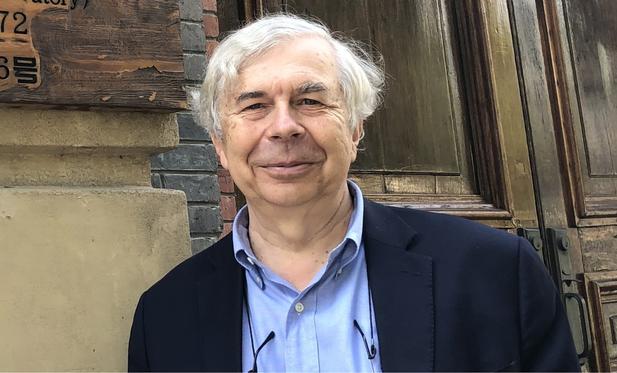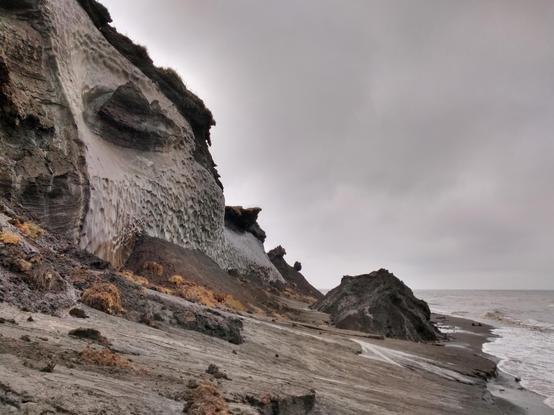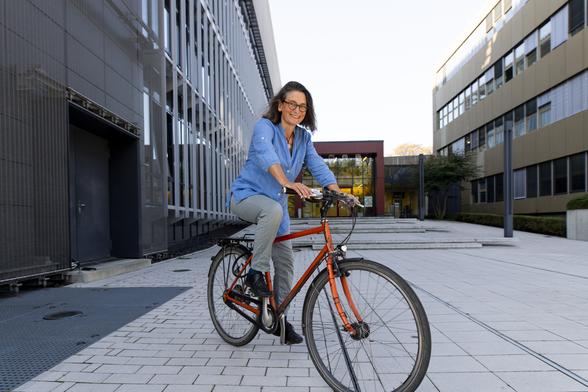🏜️ The #Sahara is a hot #desert &the #Sahel a climate transition zone. Thousands of years ago, these regions were much greener than today, sustaining river networks with lush vegetation, wildlife,& settlements. 🍃💦. Such African Humid Periods (AHPs) occurred quasi-periodically in Earth’s history. #MPI_Scientist Mateo Duque Villegas et al. have simulated AHPs for the last glacial cycle & developed a statistical tool for predicting AHPs over the last 800,000 years. Read more: https://doi.org/10.5194/cp-21-773-2025
#mpi_scientist
🌍 ❄️🔥 Dive deep into Earth’s climate history! This Wednesday and at the invitation of Wilhelm Foerster Sternwarte Berlin, #MPI_Scientist Dr. Lennart Ramme will take you 720–635 million years back in time. During this period, Earth was nearly entirely frozen at least twice. Learn about the role of CO2 & other drivers of climate variability, and why the current change in climate is unprecedented in Earth’s past! The talk will be in German.
📍 Schöneberger Rathaus
🗓️ June 11, 2025
🕗 8 PM
💸 #AMOC weakening could cost trillions! 🌊
Many people are worried about a weakening AMOC. But economic studies deem AMOC weakening beneficial because it would cool the Northern Hemisphere in times of #globalwarming.🌡️ 🌍
💡 #MPI_Scientist @felixschaumann & @Edu_Alastrue show that this is counteracted if one considers how much less carbon the ocean absorbs due to AMOC weakening. This effect increases estimates of the social cost of carbon by around 1%.
☁️ The #Walker circulation, an atmospheric circulation pattern in the #tropics, ☀️ has accelerated in recent years, puzzling #climate scientists who had anticipated the opposite. #MPI_scientist Sarah Kang and colleagues have found out why by revealing the competing effects between the global warming and the sea surface temperature pattern effect. 🌊 🌡️
💡 Learn more: https://mpimet.mpg.de/en/communication/detail-view-news-homepage/study-explains-unexpected-recent-strengthening-of-the-walker-circulation-1
📖 Full paper: https://agupubs.onlinelibrary.wiley.com/doi/10.1029/2024GL111897
Image Credit: Y. Schrader/MPI-M
📈☁️🌊 The compilation of observations from different ship campaigns can be tedious–but a solution is underway. By taking the example of the 2023 ARC cruise in the Atlantic, a team around Laura Köhler (@awi)& #MPI_scientist Julia Windmiller proposes a standardized approach for the management of ship-based data. 📊⛴️ The package includes the data itself, a paper, a #GitHub repository & a #Python package! See https://mpimet.mpg.de/en/communication/detail-view-news-homepage/proposal-for-an-improved-handling-of-ship-based-data
#FAIRData #EarthObservation
Credit: D. Kępski
🎼🎻🎺🎹 Be the Change! Wer entscheidet über die Zukunft der Erde? 🌍 Unter diesem Motto veranstalten die Bochumer Symphoniker ein Konzert für Kinder, welches durch Statements von Klimaforscher*innen begleitet wird. Unter anderem ist dort unsere #MPIM Wissenschaftlerin Lara Wallberg zu hören.
📆 Die Uraufführung hat heute Vormittag vor Schulklassen stattgefunden, aber für diesen Sonntag gibt es noch Restkarten. ➡️ https://www.bochumer-symphoniker.de/programm/detail/be-the-change
#MPI_Scientist #Wissenschaftskommunikation #Klimakommunikation
Natural hydrodynamical noise in the #ocean & #atmosphere isn’t just static—it’s key to understanding climate variability. A review by Hans von Storch (@hereon)& #MPI_scientist Lin Lin explores the significance of this internal variability for numerical experimentation and analysis. ➡️ https://www.mdpi.com/2073-4433/15/11/1317
Image: Model results show that external forcing (tides) limits the generation of large-scale internal variability in the South China Sea. CC BY v. Storch & Lin, Atmosphere 15(11), 1317, 2024
In recognition of his commitment to international scientific collaboration, the AGU honored #MPI_scientist Guy Brasseur with the Kaufman Outstanding Research and Unselfish Cooperation #Award. The former #MPI_Director, currently leader of the #Environmental modeling research group at #MPIM, received the prize yesterday at the 2024 AGU meeting, the largest gathering of #Earth 🌍 and space 🚀 scientists, which is currently taking place in Washington, D.C. 🇺🇸 Congratulations! 💐 👏
Credit: private
How is climate change going to affect Arctic shorelines? A new #PNAS #paper involving #MPI_scientist David Nielsen finds that, by 2100, there may be:
🌊 unprecedented land loss pushing the Alaskan coastline further inland than at any point in the last 100,000 years 🌊
🐟 potentially 8–11 times more carbon released than from coastal erosion alone, affecting marine ecosystems 🐟
📖 Find out more about these projected impacts & what could be done about them: https://s.gwdg.de/nBEkqZ
Credit: D. Nielsen
United for the future of #climate 🌍 #science: At our annual retreat, we put our heads together to bring our research forward. 🙌 It is a great opportunity for an intensive exchange across our three departments. Last week, we gathered at 📌 Fintel in Lower Saxony and had a very productive time! We take momentum with us for exciting current and future work!
Wanna join this crowd? Check out our latest #job openings at https://mpimet.mpg.de/en/career/job-opportunities
#MPIM #MPI_scientist #teamwork
The fraction of human-made #CO2 that stays in the atmosphere is what drives global warming. Lucky for us, large quantities of the emitted CO2 have been absorbed by the ocean or by plants. But this could change as the planet is getting hotter. #MPI_Scientist Torres Mendonca et al. have recently revealed the details of this climate–carbon-cycle feedback for a set of models that have been used in the #IPCC reports – and found the land carbon cycle to be a major player. https://doi.org/10.5194/bg-21-1923-2024
🧊🌊🔥 From snowball to supergreenhouse - the Earth went through dramatic climatic changes in the past.
📖 In his PhD thesis, #MPI_Scientist Lennart Ramme used an Earth System Model to show how ice and water, salt and carbon interacted during these massive changes.
🏆 For this outstanding work, he has been awarded the prestigious Wladimir Köppen Award - Congratulations on this fantastic achievement, Lennart! 🎉
Read more here: https://www.cliccs.uni-hamburg.de/career/koeppen-award.html
Image © Diallo/MPI-M
🌊 Internal waves are important for #ocean mixing but not resolved by current ocean models. Instead, their impact is expressed in terms of parameters, but often energetically inconsistent. A team around #MPI_scientist Nils Brüggemann recently presented a novel energetically consistent parameterization for internal-wave-driven mixing, IDEMIX. In the 3 evaluated models, IDEMIX improved the agreement between simulated mixing patterns & observations. ➡️ https://doi.org/10.1029/2023MS003768
@awi @unibremen
🗺️ ©MPI-M
Got plans for this weekend? If not, here’s a tip: #MPI_Scientist Shreya Dhame is talking about #Ocean Futures at the re:publica festival in #Hamburg tomorrow, September 21st at 4:45 pm (in English). It is an informal setting and you can ask anything you ever wanted to know about the ocean, #climate, and a scientist’s daily routines 👩💻 😉
@republica
#rpHH
More info: ➡️ https://re-publica.com/de/session/ocean-futures
Together, the "Max Planck Hamburg" team cycled over 12,000 km last year as part of the "Stadtradeln" challenge - as far as to New Delhi and back. 🌏
This year, again, all three of Hamburg's #MPIs are cycling through the city, and on day 8 they have already covered more than 2000km! 🚲 Here you see #MPI_scientist Ulrike on her bike in front of the DKRZ building next door (Credit: Tom Pingel).
You can find the current status here: stadtradeln.de/hamburg 📊
⬇️ English in the comments! ⬇️ Über 12000 km hat das Team "Max Planck Hamburg" letztes Jahr beim #STADTRADELNHamburg zusammen zurückgelegt - so weit wie nach Neu-Delhi und wieder zurück. 🌏
Auch dieses Jahr radeln die drei Hamburger #MPIs im Rahmen dieser Challenge durch die Stadt und an Tag 8 sind schon mehr als 2000km geschafft! 🚲 Hier seht ihr #MPI_Scientist Ulrike auf dem Rad vor dem #DKRZ-Gebäude nebenan (Credit: Tom Pingel).
Den aktuellen Stand findet ihr hier: stadtradeln.de/hamburg 📊
In a new #paper by #MPI_Scientist Moritz Günther, Hauke Schmidt, Claudia Timmreck, and Matthew Toohey show how aerosol perturbations in the stratosphere 🌋 lead to a cascade of unanticipated effects with global implications.
The heating from the aerosol changes the stratospheric circulation which perturbs the distribution of radiant energy flows, eventually influencing the surface temperature in ways that affect the climate system globally 🌍.
Read more here :https://acp.copernicus.org/articles/24/7203/2024/
Für den GWDG AI Chat empfehlen wir euch das Modell Llama 3.1-8B Instruct als Standardmodell. Es ist das leichteste Modell mit der schnellsten Leistung und guten Ergebnissen in allen Benchmarks und unterstützt euch gut bei allgemeinen Gesprächen und Hilfestellungen.
Einfach auswählen und loslegen!
➡️ https://chat-ai.academiccloud.de/chat
#gwdg #gwdgTools #it4science #ai #AiResearch #it4science #mpi_scientist #unigottingen #ki #lernenmitKI #DigitalisierungKI
Sometimes a good idea turns out to be even better than originally thought:
The emissions trading system #ETS of the #EU 🇪🇺 is built to reduce #CO2 emissions, but it has also generated large health benefits by reducing air pollution 💨
This is the finding of a new study by #MPI_Scientist Jonas Grunau and colleagues, published in #PNAS
📝 Read the full #paper here: www.doi.org/10.1073/pnas.2319908121
🎙️ or listen to Jonas being interviewed by the Deutschlandfunk: www.tinyurl.com/3ac3pn8n
🌊 The #Arctic Ocean absorbs a large amount of #CO2 due to its cold waters. However, #ClimateChange is reducing this effect.
#MPI_Scientist Nielsen et al. shows that coastal permafrost erosion releases organic matter, decreasing the ocean's CO2 absorption capacity. This could mean 1-2 million metric tons less CO2 absorbed annually for every degree Celsius rise in global temperature.🌡️🌍
🔎 Learn more: https://www.nature.com/articles/s41558-024-02074-3
or
https://s.gwdg.de/mZodSO
